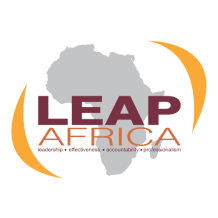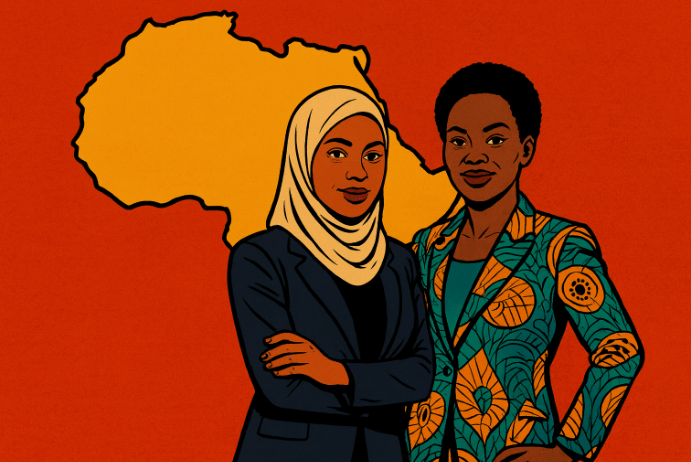The rising trend in trafficking among children and youths: Causes and solutions
Human trafficking is a severe social challenge in Nigeria. More worrisome is that children and youths constitute the bulk of trafficked victims. A study on human trafficking revealed that the average age of registered trafficked victims is 27. For Nigeria, 58% of trafficked victims are children. Children and youths are often recruited by traffickers and compelled into forced labour, most recently for rituals. Human trafficking has devasting effects on victims. These effects include physical and emotional trauma, which often leaves victims in deplorable states and needs rehabilitation. This article addresses the causes of human trafficking and the factors propelling the incidence of youths as victims of trafficking. The article also highlights some current interventions implemented by LEAP Africa to mitigate human trafficking in Nigeria, and relevant recommendations are brought forward.
Major Causes of Human trafficking among Children and Youths
A root cause of human trafficking among youths in Nigeria is economic hardship characterised by the lack of employment opportunities and widespread poverty. According to the latest unemployment statistics, 40.8 % of youths aged 15-24 and 30.7% of 25-34 are unemployed. Without employment, young people become desperate for survival. Thus, they fall into the ploys of traffickers who promise them a good life outside the country. Sadly, these desperate young people are recruited into exploitative ventures.
Another cause of youth trafficking is the lack of awareness of the activities of human traffickers in communities. Due to the lack of understanding of the guises employed by traffickers, potential victims cannot uncover persons involved in the recruitment of individuals for trafficking purposes. The major failure in the lack of such widespread awareness on trafficking is due to the narrow reach of sensitisation activities of National agencies in charge of countering trafficking. There is a lack of collaboration among the concerned agencies-those in charge of women and youth welfare- in designing public sensitisation activities across grassroots communities where trafficking happens. Another manifestation of the shallow reach of public awareness efforts on trafficking is the lack of harmony between national agencies in charge of anti-trafficking and Civil Societies that engage in anti-trafficking activities. Such disharmony denies the country a more widely spread public awareness that should have resulted during a more effective partnership between government agencies and Civil Societies working to end trafficking.
Furthermore, the failure to implement anti-human trafficking and allied laws across some states has also contributed to the rate of trafficking in young persons. One of such instances is the non-implementation of the Child Rights Act at the grassroots. The Child Rights Act prohibits child labour and exploitation and children’s use for drug trafficking. Failure to implement this law could encourage trafficking activities, especially towards children in such areas.
Broken Families also play a role in fuelling youth trafficking. Young people from broken homes are exposed to emotional imbalance and possible economic hardship when there is no parent to cater for them. Such circumstances put young people in danger of trafficking.
Poor integration of trafficked victims into society could also make victims go into trafficking. The re-integration of trafficked victims involves health, social and economic phases. When some or all these phases are not adequately implemented, the victims remain in the same difficulties that
pushed them into trafficked. At this point, they will consider going back. For instance,
LEAP Africa’s work towards Curbing Youth Trafficking
LEAP Africa has made efforts towards curbing trafficking among youths in Nigeria. The organisation embarked on implementing the Strengthening Civic and Accountability and Local Engagement (SCALE)-Countering Trafficking in Persons (CTIP) project in September 2021. The project was initiated to tackle trafficking in Nigeria. The programme has trained over 50 representatives of Civil Society organisations working to reduce human trafficking. LEAP Africa has also contributed to efforts to reduce trafficking by carrying out a policy gap analysis that identified loopholes in the design and enforcement of anti-trafficking laws across the state and national levels.
Recommendations
Checking the rate of youth trafficking in the country will require a lot of effort between the Government, Non-Governmental Organisations, and the private sector. On the part of the Government, National and state agencies responsible for tackling trafficking activities must put more efforts towards sensitisation and public awareness on the harmful effects of human trafficking. Also, such awareness should equip public members with knowledge that will enable them to identify potential trafficking incidents around them.
The Private sector should seek opportunities to engage young people through employability training economically vocational pieces of training, among others. These can be achieved through corporate social responsibility focused on the economic empowerment of youths. Unemployment is a major cause of youth trafficking. As such, should young people be economically engaged, they will no longer be vulnerable to trafficking.
On the other hand, Civil Society Organisations play an essential role in tackling trafficking at the grassroots and beyond. Owing to the significant part of the CSOs, it is pertinent that they work more with government agencies to take public awareness campaigns to communities. CSOs can also engage opinion groups such as religious organisations and other community groups that influence young people significantly. Such engagements will lead to an awareness of the harmful effects of trafficking and expose the ploys of traffickers. Similarly, Social media can be used as an avenue to sensitive young persons on the detrimental impacts of trafficking, given that young people are social media savvy.
Written by Terhemen Agabo



